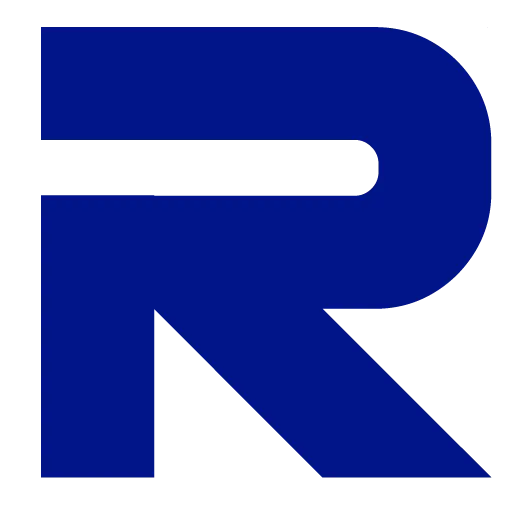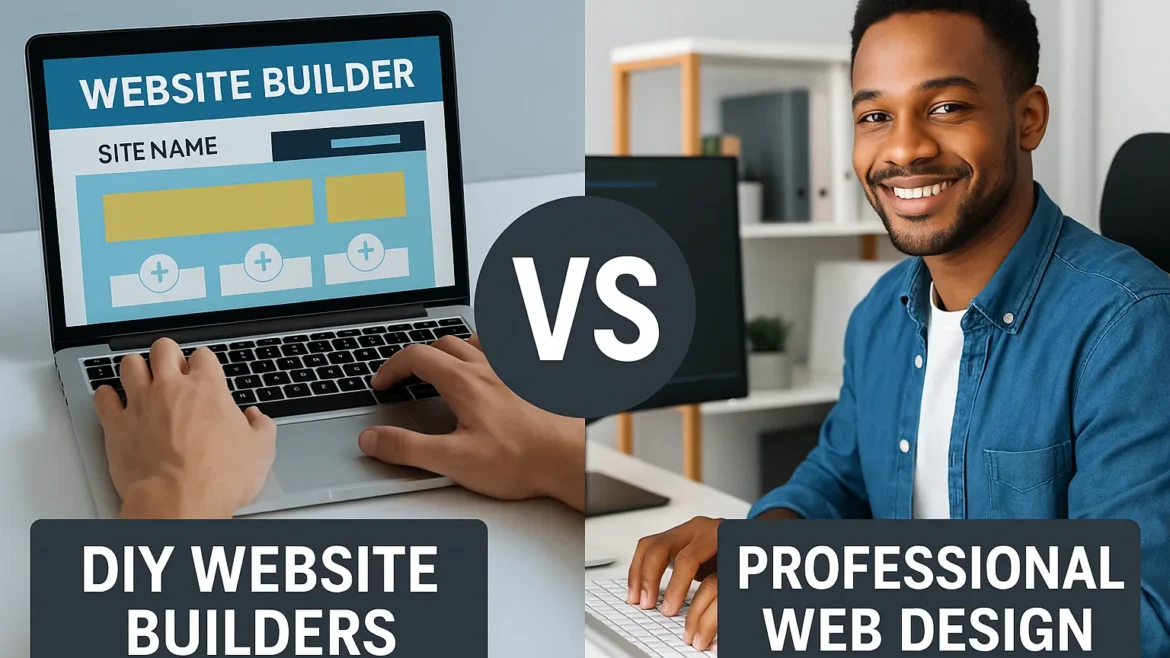DIY Website Builders vs. Professional Web Design
Small‑business owners often ask, “Should I build my own site with Wix or hire a professional web developer?”
The answer depends on budget, goals, and how much time you can invest. Below we give an unbiased comparison—covering cost, speed, AI integrations, SEO, and long‑term scalability—to help you decide.
What Counts as a “DIY Website Builder”?
| Platform | Typical Monthly Cost | Key Features |
|---|---|---|
| Wix | R200 – R600 | Drag‑and‑drop editor, built‑in SEO, Wix ADI (AI Design) |
| Squarespace | R250 – R700 | Award‑winning templates, built‑in blogging & commerce |
| Shopify Starter | R350 – R1,200 | eCommerce focus, AI‑generated product descriptions |
| WordPress.com / Elementor Cloud | R100 – R500 + premium theme | Vast plugin library, new AI writing & design assistants |
Most modern builders now include AI tools that can draft page copy, generate colour palettes, or design layouts in minutes—reducing the learning curve for non‑tech users.
What Does “Professional Web Design” Mean?
Hiring an agency or freelance developer usually involves:
- Discovery & strategy (brand, goals, target users)
- Custom design & UX tailored to your market
- Advanced SEO & analytics setup
- Scalable architecture (e.g. custom WordPress, Laravel, or headless CMS)
- Ongoing support & optimisation
Typical once‑off costs in South Africa: R8 000 – R30 000+ for a brochure site, R15 000 – R50 000+ for eCommerce or complex functionality, plus optional monthly maintenance.
Side‑by‑Side Comparison
| Factor | DIY Builder | Professional Design |
|---|---|---|
| Up‑front Cost | Low (< R1 000/mo) | Higher once‑off fee |
| Time to Launch | 1 – 2 days (templates) | 2 – 8 weeks (planning & QA) |
| Design Flexibility | Template‑based (limited) | Fully custom, brand‑aligned |
| AI Assistance | Built‑in wizards, content AI | Developer may integrate advanced AI or automation |
| SEO Depth | Basic on‑page only | Technical SEO, schema, Core Web Vitals |
| Performance & Speed | Good at first; limited control | Optimised hosting & code |
| Scalability | Difficult to migrate | Structured for growth |
| Ownership & Control | Locked to platform | Full control, portable |
| Support | DIY or ticket‑based | Dedicated expert support |
| Long‑term ROI | Lower if site outgrows platform | Higher via conversions & rankings |
Where DIY Builders Make Sense
- Micro‑budgets or MVPs (R0 – R5 000)
- Personal portfolios or event landing pages
- Testing a new idea quickly before investing further
- Non‑technical users who need a simple “digital business card”
Pro Tips for DIY Success
-
- Choose a clean, lightweight template and remove unused sections.
- Use the platform’s AI tools for initial copy, then refine manually.
- Connect Google Search Console and compress images for speed.
When Professional Design Is Worth It
- Competitive niches where SEO and UX matter (law, finance, medical).
- eCommerce stores relying on speed, security, and conversions.
- Scaling businesses needing integrations (CRM, ERP, custom portals).
- Brands that value uniqueness and strong visual identity.
- Sites requiring multilingual, accessibility, or custom functionality.
Added Value from a Developer
- Bespoke design aligned with brand strategy.
- Performance tuning for Core Web Vitals and mobile speed.
- Advanced SEO: structured data, local citations, content clusters.
- Security hardening and regular updates.
- Analytics-driven iterations that boost conversions.
The Rise of AI—But Developers Aren’t Going Anywhere 😅
AI design assistants in Wix ADI, Elementor AI, and Squarespace Blueprint can:
- Generate starter layouts and colour palettes.
- Produce placeholder copy and basic SEO tags.
- Suggest stock imagery.
However, AI still struggles with:
- Complex information architecture.
- Brand storytelling and nuanced copy.
- Technical SEO, schema, and performance tweaks.
- Integrating third‑party systems or custom business logic.
Bottom line: AI is a great co‑pilot, but you’ll still need a specialist to fly the plane.
Making the Right Choice for Your Business
Ask yourself:
- Budget – Can you allocate > R8 000 for a professional site?
- Timeline – Do you need a live site tomorrow or can you wait a month?
- Growth Plans – Will you add products, memberships, or multilingual content?
- Competitive Pressure – Are your rivals investing in professional UX & SEO?
If your answers lean toward growth, scalability, and market differentiation, hiring a professional web design team like Ravensdale Digital often provides far greater ROI.
Ready to Talk About Your Website?
Whether you’re still weighing DIY options or already convinced a custom build is the way forward, Ravensdale Digital is happy to chat—no obligation, just honest advice.
Get a Free Consultation and see which path fits your goals.




